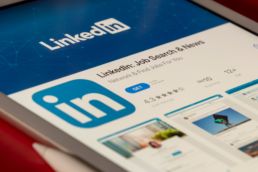Military to Civilian Career Transition
Job Search for Ex-Defence Personnel – LinkedIn, Job Boards and everything in between.
If you’ve been in the Australian Defence Force for a large portion of your career, the job market can seem like a foreign territory. “Whatever happened to reading the newspaper classifieds and sending in your resume?” one ex-ADF member asked me. It’s true, job search has changed and successful transition demands that you adapt too or be left behind.
So what do you need to know and where do you start? The following are my top three tips for adapting your job search methodology to today’s market.
- The traditional resume is dead. Gone are the days of a typed resume that was a simple transcript of your employment history. Today’s resume is a sophisticated document that requires a great deal of forethought and preparation. As many resumes are now read by employer and recruiter scanning software it’s important that your resume is scanner-friendly and targeted closely to the advertised position.Ensure your resume reflects the job or industry keywords in the advertisement and keep your resume free of shading or unusual fonts that may interfere with the scanners reading ability. Read more on writing a Defence-to-civilian resume.
- Social Media is more than just social. Social media is now an important part of job search practices. It’s important you familiarise yourself with LinkedIn, Twitter and even Facebook. LinkedIn in particular is a common hunting ground for recruiters looking for talent. Develop your LinkedIn profile carefully and ensure you make your profile heading clear and relevant to your job search target. (Read our Defence article on Your LinkedIn Profile). It’s also important in LinkedIn that you include all your ‘relevant’ skills and fill out your profile in as much detail as possible. The important word here is relevant. Familiarise yourself with what employers want in your target industry and reflect any of these you have in the skills section of LinkedIn.Recommendations are also a great way of improving your market credibility within your LinkedIn Profile. Joining relevant groups in LinkedIn will help visibility so network in areas relevant to your target industry. LinkedIn is also brilliant for unearthing contacts that may be helpful to your job search. Use your networks, and the people/company search functions to find and reach out to potential employers.Whilst LinkedIn is the main current social media tool for business, Twitter is also a great vehicle for assisting in your job search. Use Twitter to follow recruiters, hiring authorities and companies in your target industry. This will enable you to receive up-to-the-date information on latest job vacancies.
- The Internet is your greatest tool and potentially your biggest enemy. The Internet provides a wealth of information that can assist your job search effectiveness. Use it to research any companies you are interviewing with. Set Google alerts to remain up-to-date on news of your target industry or company. Find all the relevant job boards that list jobs in your target areas and set up email alerts with each job board so that you receive daily updates of any relevant job vacancies. Remember the internet can also be a danger to your job search if not handled well.Recruiters and employers use the internet to do credibility checks on potential candidates so make sure any online information is professional. If you have unprofessional content or images online make sure to have these removed if possible. Finally the other danger of the internet is becoming complacent and only using job boards as your whole job search strategy. The majority of positions never make it to job boards and are filled before hand by word of mouth or people contacting the company directly.
Finally remember the Internet is continually evolving and new opportunities are being created each day to contact and connect with potential employers. Continually monitor credible career information sources to remain up-to-date on these.
Good luck
Download a PDF version of Job Search for Ex-Defence Personnel.
Contact us today for more help starting a new career using the skills you’ve learned.
Related Posts
Military-to-Civilian Resume Writing | Video
Writing a resume for the first time when leaving the Australian Defence Force can be difficult. This video provides…
Civilian Labour Market Resources for Defence to Civilian Transition
When leaving the Australian Defence Force it's important you undertake effective career...
Applying for Australian Public Sector Roles – Tips for ADF
Applying for Public Sector Roles can be difficult if you have not experienced the recruitment and...
Potential Jobs For Ex-Defence & How to Find Them
Many military personnel worry that there are no jobs for ex-Defence. The good news is this is not the...
Shedding The Military Brand
When leaving the Defence it’s important to understand that your ‘brand’ is more than your history in the Defence force.…
LinkedIn Tips for Military-to-Civilian Transition
For many members leaving the Australian Defence Force, LinkedIn is a new technology that they...
Finding a Good Military Resume Writer
Finding a Military Resume Writer who can translate your Australian Defence Force experience into terminology that the…
Military Resumes – What to write in a civilian resume
When it comes time to leave the Australian Defence Force a lot of Ex-Defence members...
Why We Are a Proud ADF Reserves Supporter
Working every week with Defence members during career change and transition we felt really strongly about adding our…
Swapping Hats – Defence to Civilian Career Transition
Tips for transitioning from a military career to the civilian sector. Useful for ADF members interested...
Selling Your Defence Career in an Interview
Our own Gillian Kelly gives you tips and advice and selling your defence experience and skills when transitioning into…
Translating Your Defence Career To A Civilian Resume
One of the biggest challenges for most Defence personnel is how to translate their military...
Call us, we'd love to hear from you.
Find out how we can design a program to meet your needs.
Not familiar with outplacement? Learn more in our information section – what is outplacement?
Call us, we'd love tohear from you.
Find out how we can design a program to meet your needs.
Not familiar with outplacement? Learn more in our information section – what is outplacement?











